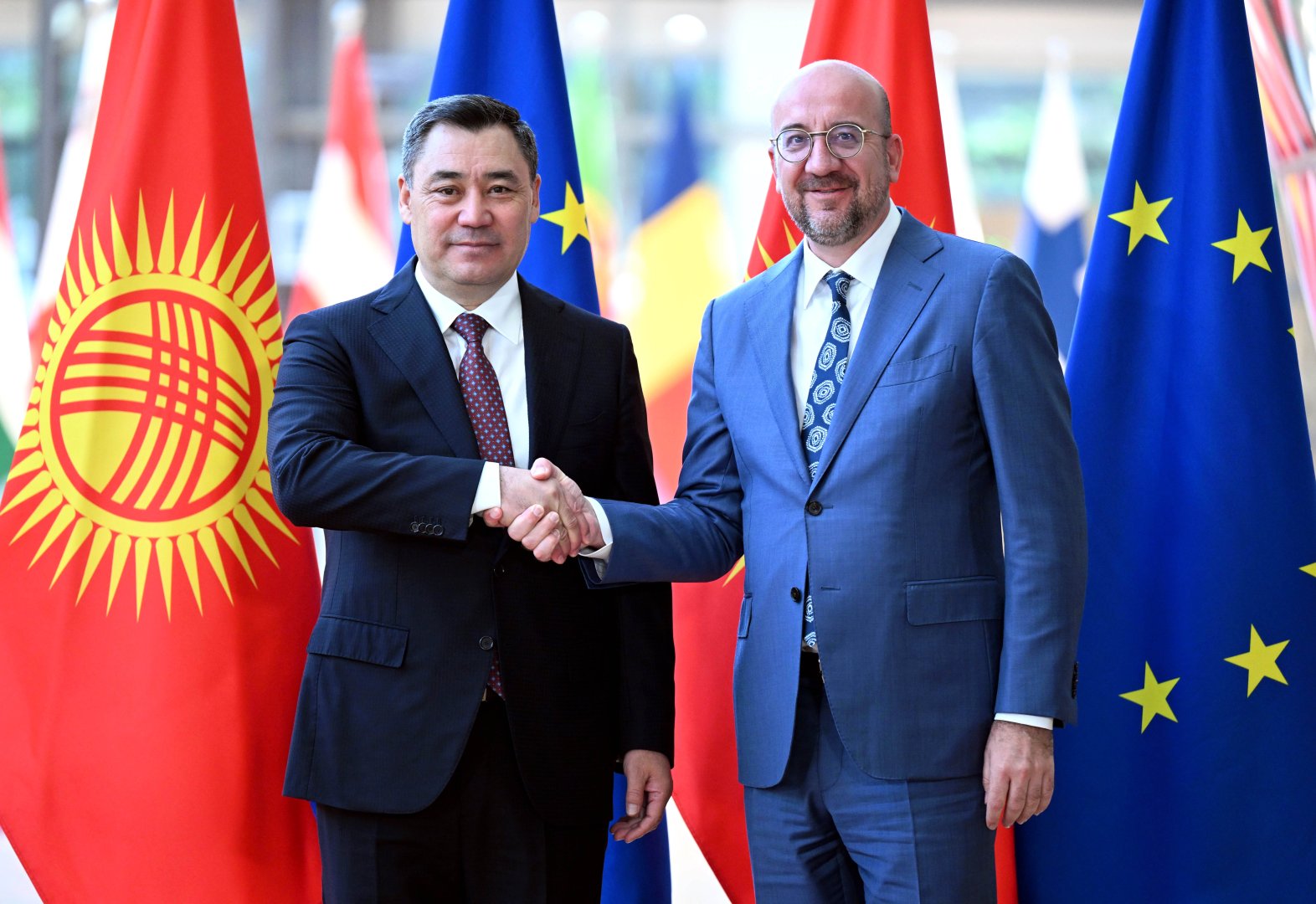BISHKEK, Kyrgyzstan, June 25. President of Kyrgyzstan Sadyr Zhaparov and European Council President Charles Michel held discussions concerning the ban on Kyrgyz flights to the EU, Trend reports.
According to the Kyrgyz president's website, the meeting took place in Brussels during Zhaparov's working visit to Belgium.
During the talks, Zhaparov highlighted that in 2006, Kyrgyzstan and its airlines were placed on the EU Aviation Safety List, commonly known as the "blacklist," due to non-compliance with flight safety standards. As a result, Kyrgyz planes have been barred from flying to EU countries since then.
Zhaparov emphasized his personal commitment to resolving this issue. He pointed out that over the past two years, Kyrgyzstan has reconstructed four airports and plans to build a new airport in Jalal-Abad.
Additionally, a special decree has been issued to improve the operations of the State Civil Aviation Agency, with necessary funds allocated for upgrading infrastructure and equipment. The State Civil Aviation Agency has been working closely with EU Commission structures since 2023, providing all required documentation.
The president also noted that Kyrgyzstan and the EU are on the brink of a new level of cooperation. He mentioned the recent establishment of a special donor platform in Vienna, Austria, in collaboration with the World Bank, to support the construction of the Kambarata-1 hydroelectric power station, one of Kyrgyzstan's largest projects.
In this context, Zhaparov invited the EU to join the project, aligning with the EU's "Global Gateway" strategy.
He also underscored the importance of cooperation in the rare metals sector, highlighting that Kyrgyzstan possesses 17 critical metals of interest to European countries, including significant quantities of europium, gadolinium, niobium, and lithium.
Zhaparov extended an invitation to potential investors and financial institutions to collaborate on projects involving these rare metals.
In turn, Charles Michel reaffirmed his commitment to deepening bilateral, broad-based cooperation founded on principles of democracy, human rights, the rule of law, and economic interaction. He identified key areas for future cooperation with Kyrgyzstan, such as energy, clean technologies, and transportation.







